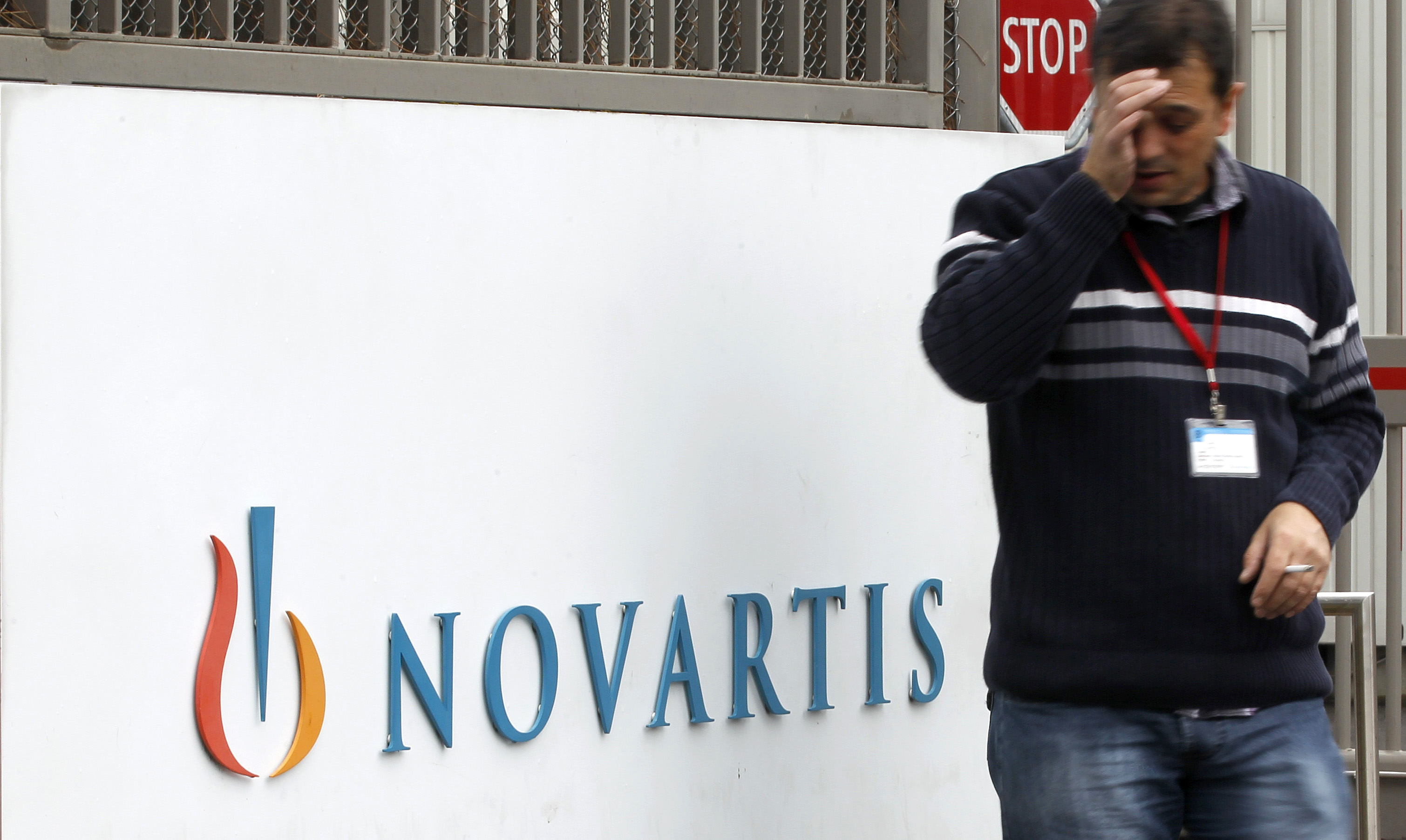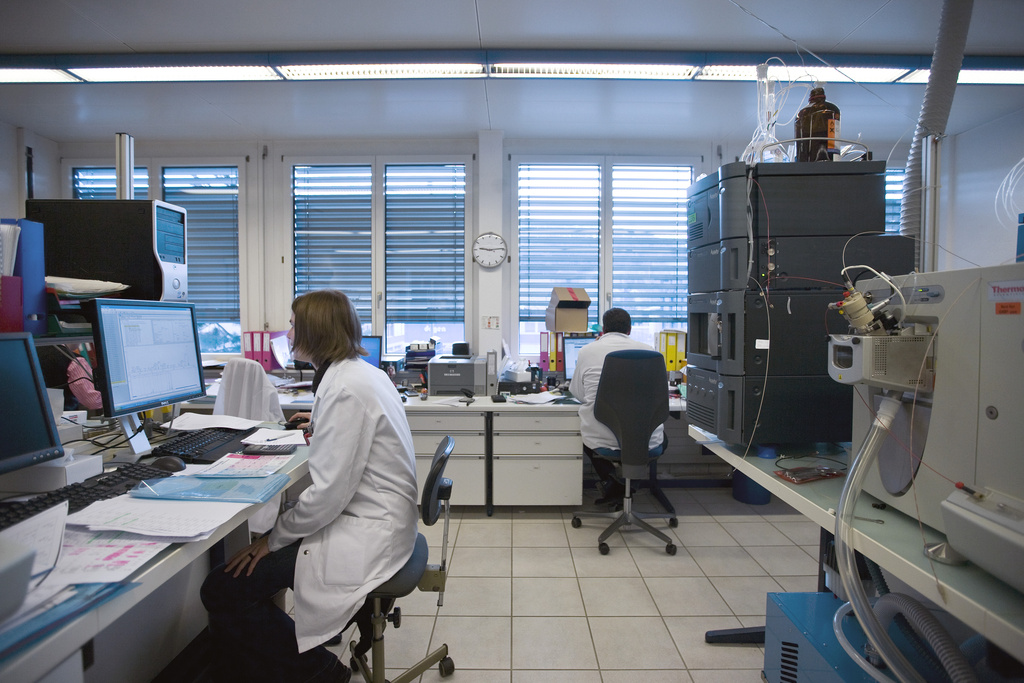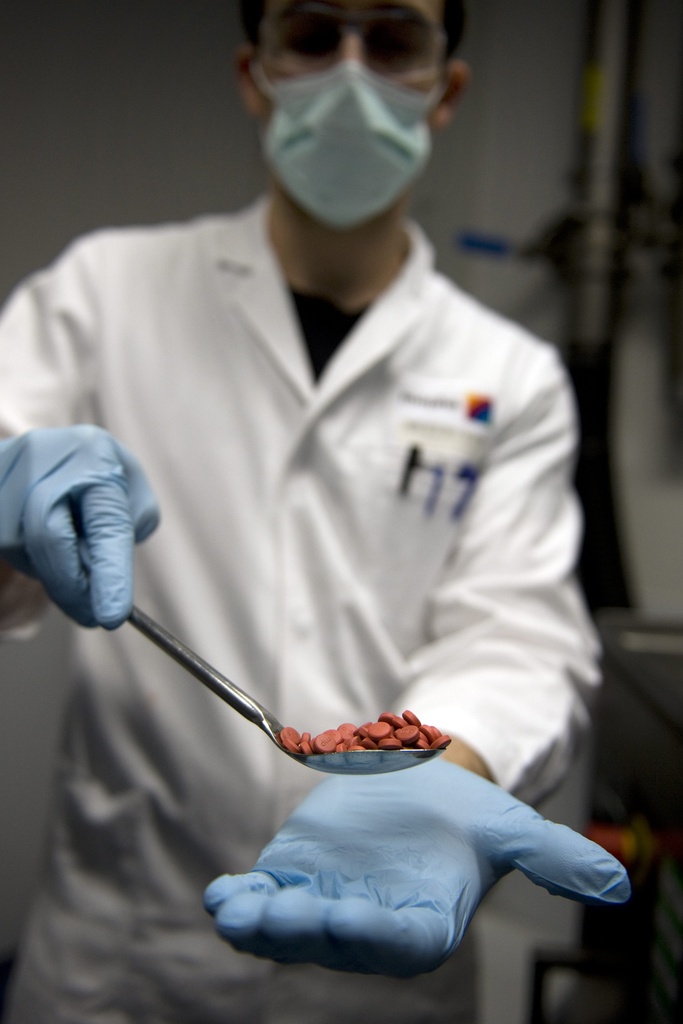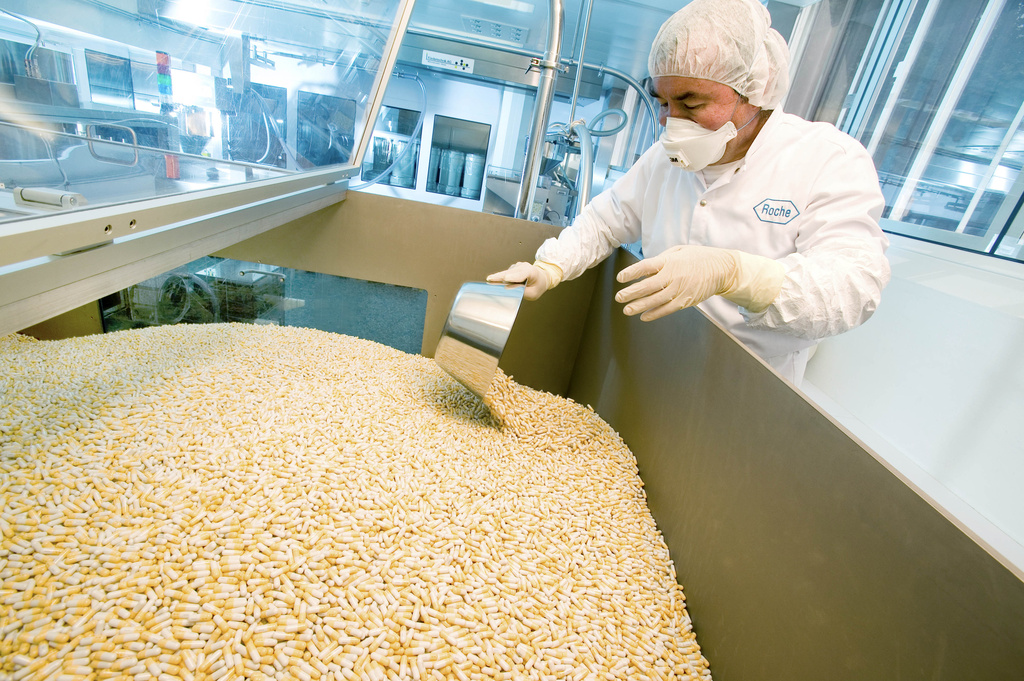Cuts at Novartis prompt pharma soul-searching

News that Novartis will shutter two manufacturing sites in Switzerland has highlighted the pressures on the Swiss pharmaceutical industry.
One of Switzerland’s strongest economic sectors, the combined pharmaceutical and medical technology industries are responsible for some 30 per cent of Swiss exports each year.
But with austerity measures introduced by governments of developed countries biting heavily into drug prices, Novartis said it was being forced to accelerate restructuring plans – despite reporting a seven per cent profit in the third quarter.
Novartis said 2,000 jobs – including 1,100 in Switzerland and 900 in the United States – will be killed. In addition to closing manufacturing sites in Nyon and Basel, the company will also outsource some research and development jobs, and create 700 new jobs in “low cost and other countries”.
Speaking to reporters in a conference call this week, Novartis chief executive Joseph Jimenez said drug prices in Europe had dropped by about five per cent this year.
“We’re facing an increasingly difficult environment which is likely to get even tougher over the next five years,” Jimenez said. “We can’t absorb these price cuts without taking action.”
The Novartis announcement follows similar measures taken last year by Roche, which slashed 4,800 positions globally, including 700 in Switzerland.
Secretary general of the Association of Swiss Chemical and Pharmaceutical Companies (Interpharma) Thomas Cueni said the Novartis restructuring should “help increase sensitivity” to the pressures facing the Swiss pharmaceutical industry.
“Novartis have quite explicitly hinted that they feel Switzerland needs to some extent a day of reckoning, that it needs to be more sensitive to the needs of a research friendly environment,” Cueni told swissinfo.ch.
Complacency
A parliamentary motion lodged in September calls on the government to come up with a plan to “revitalise research and the pharmaceutical industry”, by examining drug prices, evaluation and approval processes, and intellectual property rights.
“The future of this important sector for the Swiss economy is not sufficiently assured at this time,” the motion by the Swiss People’s Party says.
Cueni suggested that the previous strong success of the industry had bred “complacency” about the need for reform. He said that cumbersome bureaucratic processes, delays in market approvals and a decline in clinical research undertaken in recent years were eroding Switzerland’s reputation as an innovation-friendly environment.
“All these signals go in the wrong direction and that needs to be addressed,” said Cueni.
Pharmaceutical market analyst for Switzerland at Espicom Business Intelligence, Sheralyn Morey, told swissinfo.ch that competition from generics was affecting the industry, with a number of brand-name products due to go off patent soon.
“By international standards, the Swiss generic market remains uncompetitive,” Morey said.
Currency fluctuations
While healthcare reforms and pharmaceutical price cuts are posing a considerable threat to growth in the near term, Morey also pointed to the effects of the strong franc on Swiss companies.
“Many Swiss companies, including Novartis and Roche, rely on exports and so they have struggled because the franc is considered to be overvalued,” Morey said.
In reporting its third quarter earnings earlier this month, Roche said the strength of the Swiss franc has had impacted group sales negatively to the tune of 13 per cent.
However Cueni said Novartis and Roche are “well-positioned” to weather currency fluctuations because they have significant research and manufacturing operations in other parts of the world.
Indeed, Novartis said it had booked a six per cent benefit to net sales in the third quarter as a result of the weak dollar.
Cueni said that over the long term, the Swiss economy had “always had to live with a strong franc”.
“If you look at it from a corporate level, Novartis and Roche are pretty well hedged against these effects,” he said.
“When you look at it from the point of view of the Swiss sites it does have an impact because export growth is no longer as strong as it was, actually it is stagnating right now.”
Swiss specialists
Some observers suggest that the site closures announced by Novartis are an indication that the Swiss pharmaceutical industry is being forced to move away from mass production of products.
“I think that high quality products that require a lot of research and development will always be made in Switzerland while finished products will be made elsewhere,” Julius Bär economist Janwillem Acket told Le Temps newspaper.
Cueni said the cost of research and development activities in Switzerland had increased by about 20 per cent against the euro zone “in relative terms” over the past two years. But he pointed out that the industry had created 10,000 new jobs in the past decade.
“Notwithstanding the Novartis announcement, all the companies continue to invest heavily in Switzerland,” Cueni said. “The reasons are that Switzerland is still relatively well positioned.”
Morey said that it was important to note that in the case of Novartis, 11,400 jobs – around ten per cent of the company’s total workforce – would remain in Switzerland.
“Overall, Switzerland has a reputation for its quality of research, and this will continue despite the job cuts and restructuring taking place at the moment,” Morey said.
Europe and the United States each have about 40% of the sales of the Swiss chemical and pharmaceutical industry, while Asia takes in 17%, leaving Switzerland with a very small domestic market.
With a share of over 4% of the world export of chemical and pharmaceutical products, Switzerland is number nine among the biggest export nations.
Expenditures on research by the chemical and pharmaceutical industry in Switzerland in 2008 amounted to SFr5.3 billion, corresponding to 44% of total private research spending in the Swiss industry. Measured as research expenditures per employee the Swiss chemical and pharmaceutical industry is at the top of the sector worldwide.
(Source: Swiss Society of Chemical Industries)

In compliance with the JTI standards
More: SWI swissinfo.ch certified by the Journalism Trust Initiative




You can find an overview of ongoing debates with our journalists here. Please join us!
If you want to start a conversation about a topic raised in this article or want to report factual errors, email us at english@swissinfo.ch.